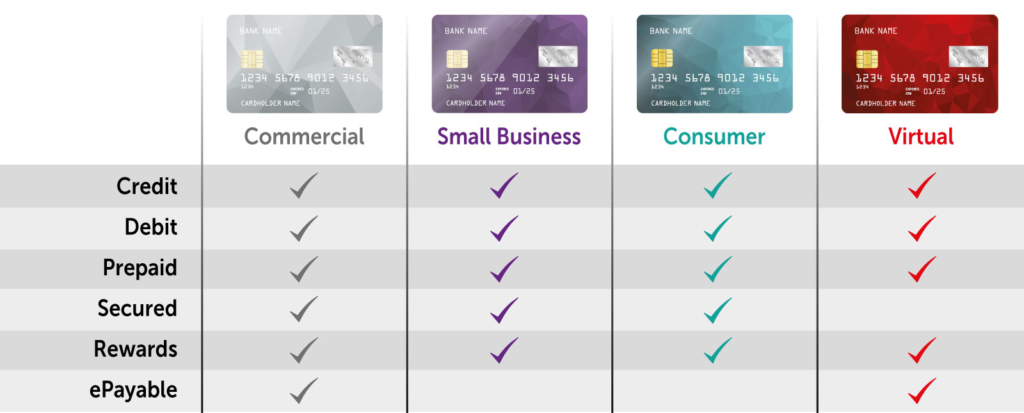When applying for a credit card, one of the most important factors that issuers consider is your income. Lenders assess your financial situation to determine whether you can responsibly manage your credit card payments. While your credit score, debt-to-income ratio, and other financial metrics matter, your income plays a key role in whether you will be approved for a credit card, the type of card you can get, and the credit limit you’ll receive.
In this article, we’ll dive deep into how your income impacts your credit card approval. We’ll also address common questions surrounding the topic, so you can be better informed when applying for your next credit card.
Key Takeaways:
- Income is a key factor in determining credit card approval and credit limit.
- A higher income generally results in higher approval chances and larger credit limits.
- Lenders also consider other factors such as credit score, debt-to-income ratio, and employment history.
- Managing your income and debt effectively can help improve your chances of approval.
Understanding the Role of Income in Credit Card Approval
Income is one of the first things credit card issuers evaluate when processing your application. It provides insight into your ability to repay borrowed money. A higher income generally signals greater financial stability and the ability to make larger monthly payments on your credit card debt. On the other hand, a low income might indicate a higher risk for lenders, which could lead to a lower approval rate, higher interest rates, or limited credit.
How Do Credit Card Issuers Use Your Income?

Credit card issuers use income data in several ways:
- Debt-to-Income Ratio (DTI): This ratio compares your monthly debt obligations to your gross monthly income. A low DTI suggests that you’re more likely to repay credit card debt on time.
- Credit Limit: Higher income may qualify you for a higher credit limit. This is because lenders are more confident in your ability to handle larger amounts of credit without falling behind.
- Approval Decisions: Lenders assess your income along with other factors like your credit score and employment status. A higher income can make up for some negative marks on your credit report, making approval more likely.
- Interest Rates and Fees: Your income can indirectly impact the interest rates or annual fees you’re offered. While these depend on your credit score and other factors, higher earners may have more negotiating power for better terms.
The Link Between Income and Creditworthiness
Your income isn’t directly related to your credit score, but it plays a crucial role in showing lenders your ability to repay debt. Here’s how your income complements your creditworthiness:
- Income Level: If you earn more, lenders feel that you have the financial capacity to handle credit responsibly. A higher income can increase your chances of approval and help you qualify for premium credit cards with rewards and perks.
- Stability of Income: A steady, reliable income is just as important as the amount you earn. Lenders prefer applicants with consistent income, as it shows that they are less likely to fall behind on payments due to job loss or income fluctuation.
- Type of Income: Whether you earn your income through a full-time job, freelance work, or passive income sources can impact how lenders assess your application. Full-time salaries are more predictable, while freelance income may require additional proof of consistency.
Factors That Can Influence the Relationship Between Income and Credit Card Approval

Your income is just one piece of the puzzle when it comes to credit card approval. Other factors, such as credit score, employment history, and overall financial stability, also matter. Here’s a closer look at these elements:
Credit Score
Your credit score is a primary factor in determining credit card approval. While income can show that you can repay a debt, your credit score indicates how well you’ve managed debt in the past. A higher credit score increases your chances of approval, and even with a modest income, you might qualify for cards with better benefits.
Debt-to-Income Ratio
Lenders don’t just look at how much you earn—they also consider how much you owe. Your debt-to-income ratio is calculated by dividing your total monthly debt payments by your gross monthly income. A high DTI can raise a red flag, suggesting that you may have trouble handling additional debt.
Employment Status
If you have a stable job or source of income, lenders view you as less risky. In contrast, if you’re unemployed or have irregular income, credit card issuers may hesitate to approve your application. Self-employed individuals may need to provide additional documentation, such as tax returns or business financial statements, to prove that their income is steady.
Existing Debt Obligations
Lenders will consider your existing credit card balances, loans, and other debt obligations. If you’re already carrying a significant amount of debt, even a high income might not be enough to secure approval, especially if your debt-to-income ratio is too high.
How Much Income Do You Need to Get Approved for a Credit Card?
| Credit Card Type | Income Needed | Additional Factors |
|---|---|---|
| Basic or Secured Credit Cards | Low to moderate income ($20,000–$30,000 annually) | Low credit score, limited credit history, or building credit |
| Standard Credit Cards | Moderate income ($30,000–$50,000 annually) | Average credit score (650–700), stable income, and moderate debt |
| Rewards Credit Cards | Moderate to high income ($40,000–$75,000 annually) | Good to excellent credit score (700+), steady income, low debt |
| Premium or Travel Credit Cards | High income ($75,000+ annually) | Excellent credit score (750+), high earning potential, low debt |
| Business Credit Cards | Varies, usually requires $50,000+ | Business revenue, stable business income, and strong financials |
| Student Credit Cards | Low to moderate income ($20,000–$30,000 annually) | For students with little or no credit history, cosigner may be needed |
| Cashback Credit Cards | Moderate to high income ($40,000+ annually) | Good credit history, responsible spending habits, and steady income |
While there’s no specific income threshold to guarantee credit card approval, most credit card issuers look for an income that’s high enough to ensure that you can meet the monthly payments. Typically, the more you earn, the more likely you are to be approved. However, the exact income needed depends on several factors, including:
- The Type of Credit Card: Premium credit cards with higher rewards or benefits might require a higher income or credit score.
- Your Credit Score: A higher credit score can make it easier to qualify for a credit card, even if your income is lower.
- Your Debt-to-Income Ratio: A lower DTI is crucial, even if you have a high income.
In general, most credit card issuers don’t specify a minimum income requirement but will evaluate your overall financial profile.
What Types of Credit Cards Are Available Based on Income?

Your income level can determine the types of credit cards you are eligible for. Here’s an overview of the types of cards you might qualify for based on different income levels:
1. Basic or Secured Credit Cards
For those with a lower income or limited credit history, basic or secured credit cards are typically the best option. These cards often have lower credit limits and fewer benefits, but they can help you build credit if you manage them responsibly.
2. Standard Credit Cards
For individuals with an average income, standard credit cards offer decent credit limits and rewards, such as cashback or points. They might also come with additional perks like introductory 0% APR for purchases or balance transfers.
3. Premium Credit Cards
If you have a higher income and excellent credit score, you may qualify for premium credit cards, which offer luxury perks such as travel rewards, airport lounge access, and concierge services. These cards often come with higher credit limits, but they may also have higher annual fees.
Also Read :-How Can You Lower Your Credit Card Interest Rates?
Conclusion
Your income is an essential factor when applying for a credit card. While it doesn’t guarantee approval, it significantly impacts your chances and the type of card and credit limit you may be offered. Lenders use your income to assess your ability to repay debt, and a higher, more stable income can improve your chances of qualifying for premium cards with better rewards.
Before applying, it’s important to consider not only your income but also your credit score, debt-to-income ratio, and overall financial health. By managing your finances wisely and ensuring that you’re in a strong position before applying, you can increase your chances of securing a credit card that suits your needs.
FAQs
Does my income affect my credit limit?
Yes, income plays a significant role in determining your credit limit. A higher income may lead to a higher credit limit because lenders view it as a sign of financial stability.
Can I get approved for a credit card with no income?
It is possible, but challenging. If you have no income, you may need to show alternative sources of income, such as investments or support from a spouse. Additionally, some secured cards may be available to individuals with no income.
What happens if I don’t have a high income but a good credit score?
If you have a good credit score but a lower income, you may still be approved for a credit card, though the credit limit might be lower. Your credit score helps mitigate concerns about your income.
Do I need to provide proof of income?
Yes, many credit card issuers will ask for proof of income to verify the details on your application. This may include pay stubs, tax returns, or bank statements.
How does self-employment income impact my credit card approval?
Self-employment income can be considered when applying for a credit card. However, lenders may require additional documentation, such as tax returns or proof of consistent income, to verify your earning capacity.
What’s a good income to apply for a premium credit card?
A good income to apply for a premium credit card typically ranges from $50,000 to $100,000 or more annually. However, other factors like your credit score, debt, and spending habits also affect approval.
Can I apply for a credit card if I don’t have a full-time job?
Yes, you can apply for a credit card even if you don’t have a full-time job, as long as you have a steady source of income. Freelance or part-time income may still be considered, but you may need to provide additional proof of financial stability.
